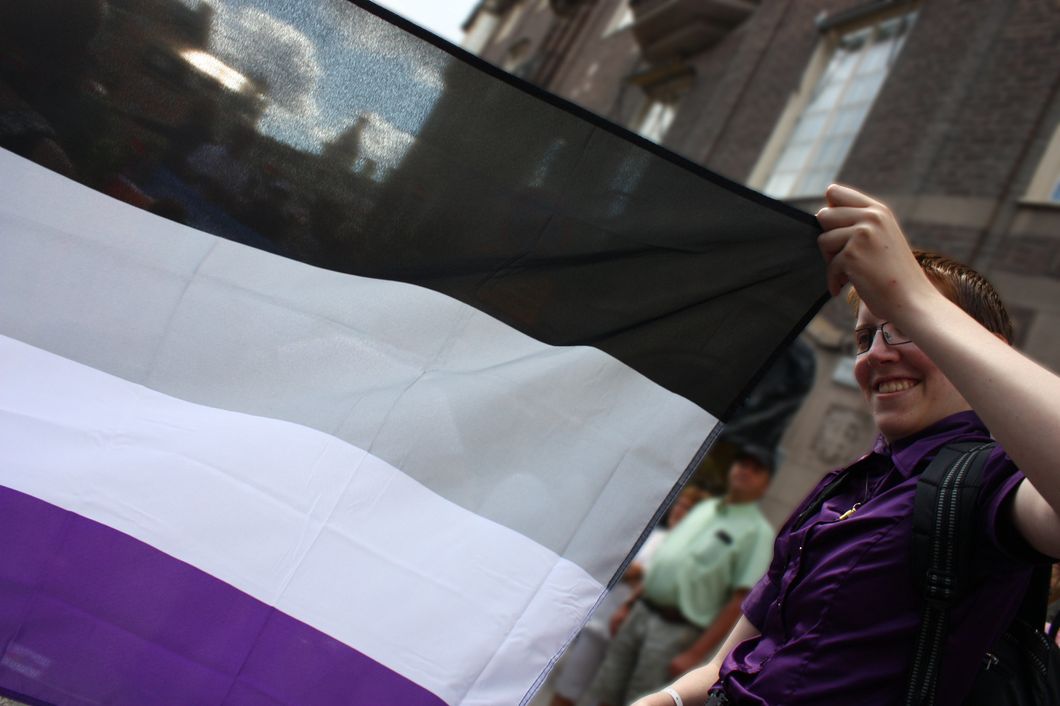The Asexual Visibility and Education Network defines asexuality as follows: "someone who does not experience sexual attraction. Unlike celibacy, which people choose, asexuality is an intrinsic part of who [a person is]." Asexual people, the organization states, are as capable as anyone else of forming close bonds with others; they just do not feel any need to introduce a a sexual element to that bond.
And, before you dismiss asexuality, numerous academic studies and articles, some from top-level universities, have already legitimized asexuality's existence.
So, enough with the plant jokes already. Asexuality is a real thing.
The fact that I even need to explain and validate this sexuality should give those underneath the "ace" (asexual) umbrella a place at Pride festivals and parades. But there are those within the LGBTQ community that say that asexual people do not belong there--Megan Hoins goes into the ugly side of that exclusionist attitude in an article from last year. Usually, this "ace discourse" manifests online, but, as we all know, the Internet does not exist in some sort of vacuum, and what we say has very real consequences, no matter where our voices are heard.
I'm a lesbian but not ace. Maybe that's a little TMI, but I wanted to let you know where my perspective comes from before I launched into my argument: yes, asexual people are part of the LGBTQ community, and they do belong at Pride festivals, parades and anywhere else considered a safe space for members of the LGBTQ community. I want and value their presence there, so long as they want and value mine.
Why do I feel this way? I could write a whole essay on all of the reasons; unfortunately, an online article is a bit too short to cover them all. I'll stick with something that research cannot discuss: my own coming-out experience. I have a lot more in common with an asexual person in this respect than I do a heterosexual person.
As a lesbian, I dealt with compulsory heterosexuality--in fact, I wrote a whole article on it. Basically, it is the societal assumption that, as a woman, I am obligated to like men. It took me years to convince both myself and others that my identity and feelings were real.
Asexual people deal with a similar hurdle: compulsory sexuality. They deal with this weird, Westernized hypersexualization: of boobs being shoved in their faces in every single magazine ad, of men with sexy six-pack abs in commercials. Viewing sexualized images when there are no sexual feelings present feels to the asexual very similar to how I felt with everyone telling me that I was supposed to like men: everyone saying, "He's so cute and so into you, go talk to him!" and one of my parents not accepting the fact that I don't like men for months after I came out, stuff like that.
By no means am I trying to lump the asexual and lesbian experience together; they are two unique things, but they bear remarkable similarities. The fact of the matter is, though, that heterosexual people never have to go through anything like this. They never have to defend their right to love who they love, to feel about who they feel about. Society just rolls with it, because it's the norm.
If I, a lesbian, belong to the LGBTQ community because I do not fit societal norms of what is expected of my attractions, then why don't asexual people?






















